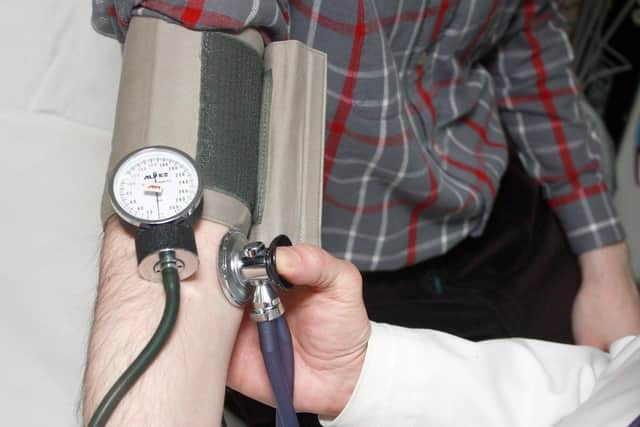Pandemic response ‘accelerated innovate ways of working’ at GP practices in Northern Ireland - Dept.
and live on Freeview channel 276
The Department was responding after the Journal asked if they had held talks with any bodies after local people repeatedly raised difficulties in booking face-to-face appointments at some practices and in some instances even getting through on the phone.
A DoH spokesperson responded: “GP practices are open and will continue to provide both face to face appointments and alternative consultation options for patients as appropriate.
Advertisement
Hide AdAdvertisement
Hide AdThe general practice telephone first consultation allows patients to seek timely medical advice from their GP for both routine and urgent problems. The GP determines the most appropriate approach to safely addressing the patient’s needs using their clinical expertise. The GP decides, based on their assessment, if a face to face appointment is appropriate, if the patient can be managed over the telephone or if they should be signposted or directed to other appropriate services.”


The DoH said this approach “helps the GP to appropriately manage, treat and support the large number of people who seek clinical support and advice”, and added: “It is important to be clear also about the extent to which primary care was already facing considerable pressures prior to the pandemic. Figures in 2019 indicated patient contacts were almost 15 million per year, up from an estimated 12.7 million in 2014. Even before having to cope with the strain of a sustained pandemic situation, the need for transformation of primary care was already recognised.”
The Department said initiatives including its Multi-Disciplinary Team Programme, new Advanced Nurse Practitioners and additional GP nurses “were already making a difference to how services are delivered”, and that investment in technology, including telephony, was also assisting GP practices to meet growing demand. “The development of this mixed approach to delivering primary care services has been ongoing since 2016, so is not a new concept. Primary Care’s response to the COVID-19 pandemic accelerated the implementation of new and innovative ways of working to enable General Practice, along with all other areas within the health and social care system, to react quickly and adapt flexibly to the demands and challenges of the pandemic.
“Despite the demands and capacity limits that COVID has created, GPs have maintained all of the core elements of general practice services.”
Advertisement
Hide AdAdvertisement
Hide AdThe spokesperson added: “The use of more innovative ways of working, including telephone and video consultations, is now widely embedded and the model of Primary Care will continue to transform to meet growing patient demand with technology and new ways of working playing an important role alongside existing arrangements, such as face to face appointments, which will continue to be available to GPs to safely manage patient care.”